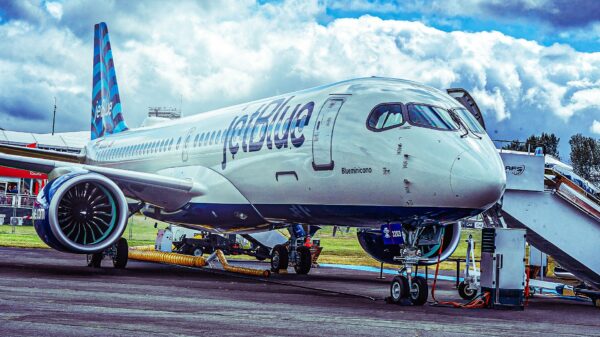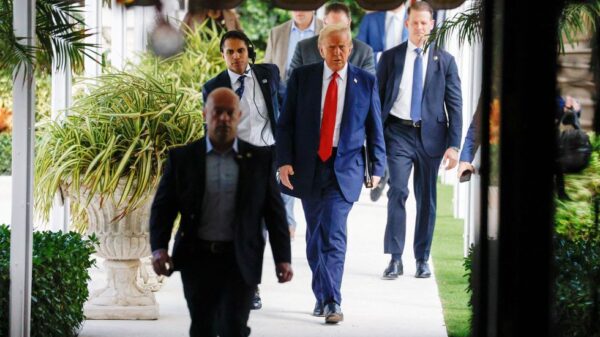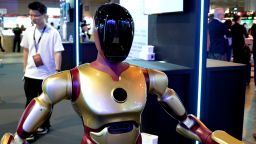China has introduced a comprehensive plan for global governance of artificial intelligence, coinciding with the United States’ recent announcement to strengthen its dominance in the rapidly evolving sector. This proposal was unveiled by Chinese Premier Li Qiang during the World AI Conference (WAIC) in Shanghai, a prominent gathering attended by technology leaders from over 40 countries.
In his address on Saturday, Li highlighted the fragmented nature of global AI governance, stating, “Overall, global AI governance is still fragmented. Countries have great differences, particularly in terms of areas such as regulatory concepts, institutional rules.” He emphasized the need for increased coordination among nations to establish a cohesive global AI governance framework that reflects a broad consensus.
Li’s remarks followed the recent publication of a 28-page AI action plan by the Trump administration, which aims to streamline regulations and reinforce US leadership in AI. While Li did not explicitly mention the United States, he referenced ongoing trade tensions, particularly concerning American restrictions on advanced semiconductor exports, which are crucial for AI development. “Key resources and capabilities are concentrated in a few countries and a few enterprises,” he stated, warning against a technological monopoly that could limit AI advancements to a select few nations.
AI chips have emerged as significant leverage in US-China trade negotiations, which continued this week with a meeting in Stockholm. Prior to these discussions, both countries appeared to soften their stances; the US lifted its ban on sales of a key Nvidia AI chip to China, while Beijing suspended its antitrust investigation into American firm DuPont. Speaking from Scotland, Trump noted that the US is “very close to a deal with China,” although specific details remain undisclosed. The current deadline for a formal agreement is set for August 12.
China’s aggressive investment in AI underscores its commitment to competing with the US. The nation boasts over 5,000 AI companies, with its core AI industry valued at 600 billion yuan (approximately $84 billion) as of April 2025. Government and private sector funding has been a driving force, with state venture capital firms investing an estimated $209 billion in AI-related businesses from 2013 to 2023, according to the National Bureau of Economic Research. This year, public sector spending on AI is projected to exceed 400 billion yuan (around $56 billion).
Although China’s total AI investment still lags behind the US, which saw private AI investments reach $109.1 billion in 2024, the gap is narrowing. Notably, China has surpassed other nations in publishing patents for generative AI inventions since 2017, according to data from the World Intellectual Property Organization. Recent developments, such as the launch of the Chinese startup DeepSeek‘s AI model R1, which reportedly cost just $5.6 million, have showcased China’s rapid advancements and technical prowess.
Furthermore, the AI community is buzzing about another Chinese startup, Moonshot, which recently introduced its Kimi K2 model, outperforming several offerings from major companies like Google and OpenAI at a lower cost. Experts predict that China’s AI market could achieve a return on investment of 52% by 2030, as outlined in research by financial services firm Morgan Stanley.
Discussions at WAIC also featured a call for robust governance of AI from Dr. Kao Kim Hourn, Secretary-General of ASEAN. He urged the international community to take coordinated action to address potential threats posed by AI technologies, including misinformation and cybersecurity risks. Dr. Hourn indicated that AI’s implementation in the ASEAN region could boost its GDP by 10-18%.
Former Google CEO Eric Schmidt echoed the need for collaboration between the US and China, stating, “As the largest and most significant economic entities in the world, the United States and China should collaborate on these issues.” He stressed the importance of maintaining global stability and ensuring human oversight of AI technologies.
The WAIC, organized by the Artificial Intelligence International Institute (AIII), has become a pivotal platform for showcasing technological innovations since its inception in 2018. This year’s conference attracted participation from over 800 companies, prominently featuring Chinese tech giants such as Tencent and Alibaba, alongside significant US firms like Tesla and Amazon.
Exhibits included groundbreaking AI models from Tencent and SenseTime, Alibaba’s AI-powered smart glasses, and various robotics innovations, such as popcorn-serving robots from Keenon Robotics and companion robots from Shenzhen-based ZTE. The event also showcased Unitree’s G1 boxing robot, which captured the attention of visitors and became a social media sensation.
As the global race in AI technology intensifies, the proposals and discussions emerging from the WAIC highlight the critical need for international dialogue and cooperation in shaping the future of AI governance.




































































